# PagerDuty Job Steps (Enterprise)
# What is PagerDuty?
PagerDuty is a software that provides incident response management services to IT operations teams. When an incident is created, PagerDuty makes it easy for IT teams to track that incident for the duration of its life. The Rundeck and PagerDuty integration allows teams to run diagnostic and corrective actions to minimize the duration of the incident, as well as get event notifications within PagerDuty.
TIP
Some job steps require specifying the key path in either project settings (project.pagerduty.api_key_path=keys/pd/api) or framework.properties (pagerduty.api_key_path=keys/pd/api) before configuring the steps. There are dynamic fields that will populate with Escalation Policies, etc. to help streamline configuration. (Be sure to replace "keys/pd/api" with your own key storage path and key name)
# PagerDuty Incident Note
This job step allows users to add a note to an existing PagerDuty incident.

- API Token: The API token associated with the PagerDuty account. In PagerDuty go to Configuration, select API access and either create a new key or use an existing one.
- Email: The email address associated with the API token (whichever user was logged in when the token was created)
- Incident ID: The ID of the incident to add a note to
- Note: The note to add to the incident
# PagerDuty Escalate Incident
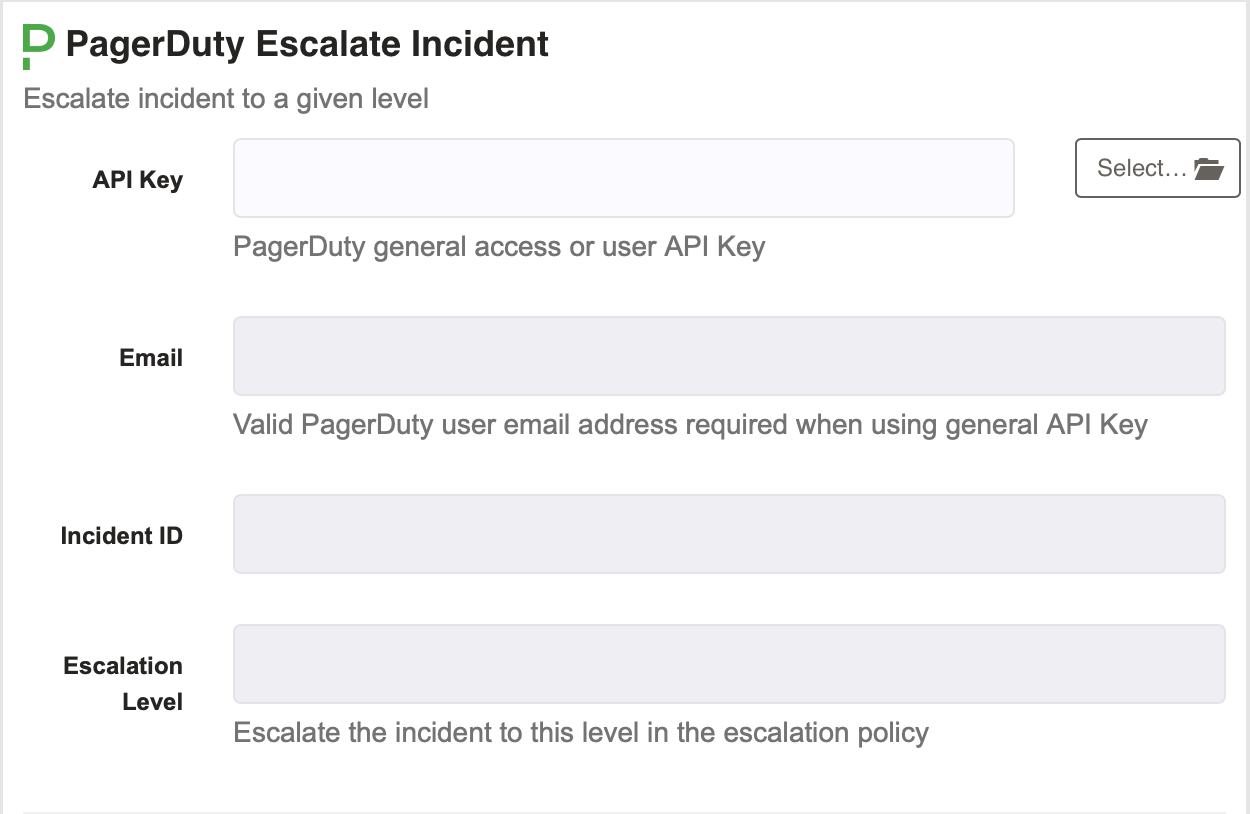
API Key : The API key for the account that contains the incident to update.
Email : The email address associated with the API token (whichever user was logged in when the token was created)
Escalation Leve : The level of the escalation policy that the incident should be escalated to.
Incident ID : The ID of the incident to run the response play for.
# PagerDuty Run Response Play
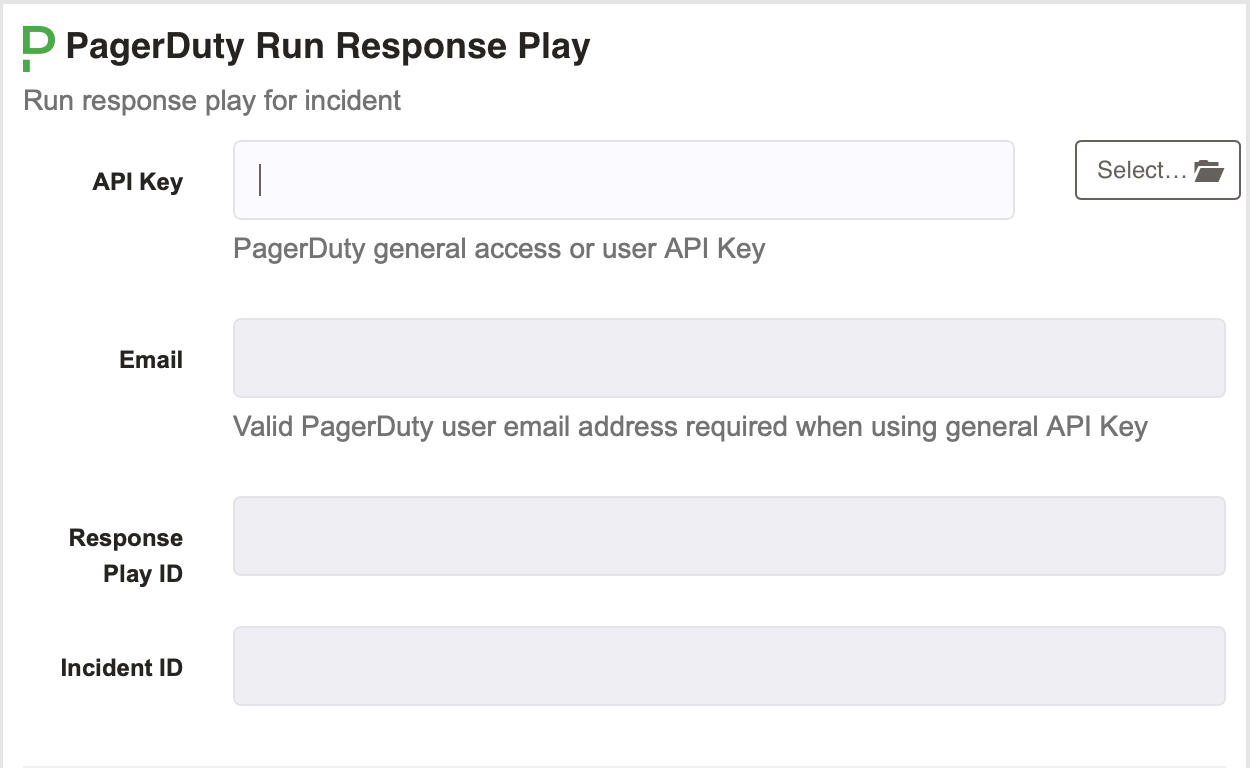
API Key : The API key for the account that contains the incident to update.
Email : The email address associated with the API token (whichever user was logged in when the token was created)
Response Play ID : The ID of the response play to be run in response to the incident.
Incident ID : The ID of the incident to run the response play for.
# PagerDuty Send Event
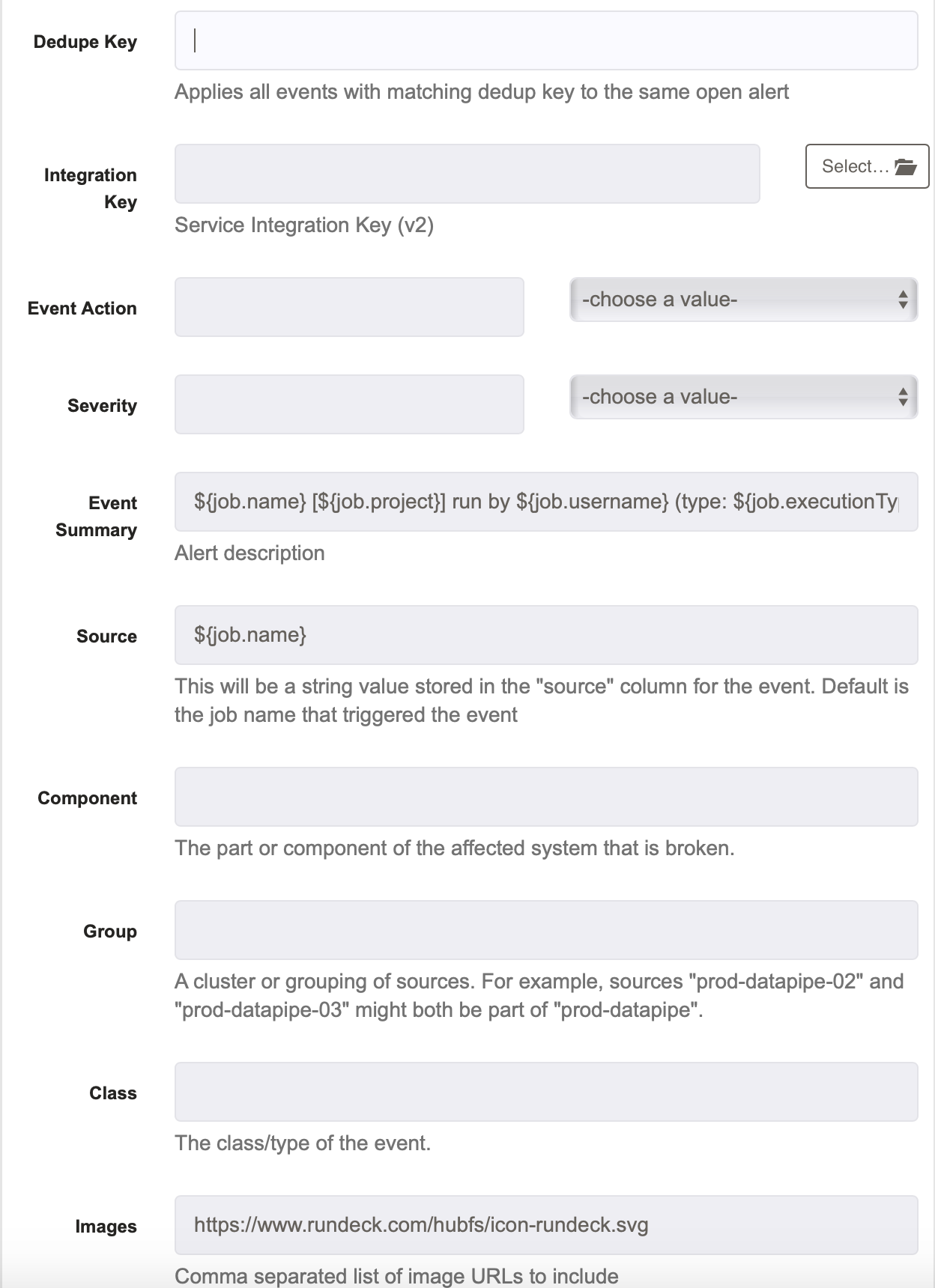
Dedupe Key : If a dedupe key is specified, it applies all events with matching dedupe key to the same open alert
Integration Key : This is the integration key for the account where the incident is
Event Action : These are the possible actions to take when creating the event. The options are trigger, acknowledge, and resolve.
Severity : This is the current severity level of the event. The options are critical, warning, error, info.
Event Summary : This is the summary for the event. The default sends execution information as the summary, but it can be anything.
Source : This is the source that created the event. By default, it is the job name, but it can be anything.
Component : This is where to specify the part or component of the affected system is broken.
Group : If something is specified here, it allows for a cluster or grouping of sources. For example, sources "prod-datapipe-02" and "prod-datapipe-03" might both be part of "prod-datapipe".
Class : The class/type of the event.
Images : This is a comma separated list of image URLS to include in the event.
# PagerDuty Update Status
This job step allows users to update the status of an existing PagerDuty incident.

- API Token: The API token associated with the PagerDuty account
- Email: The email address associated with the API token (whichever user was logged in when the token was created)
- Incident ID: The ID of the incident to want to add a note to
- Message: This is where to update the status (acknowledged or resolved)
# PagerDuty Incident Update
This job step allows users to update an existing PagerDuty incident.
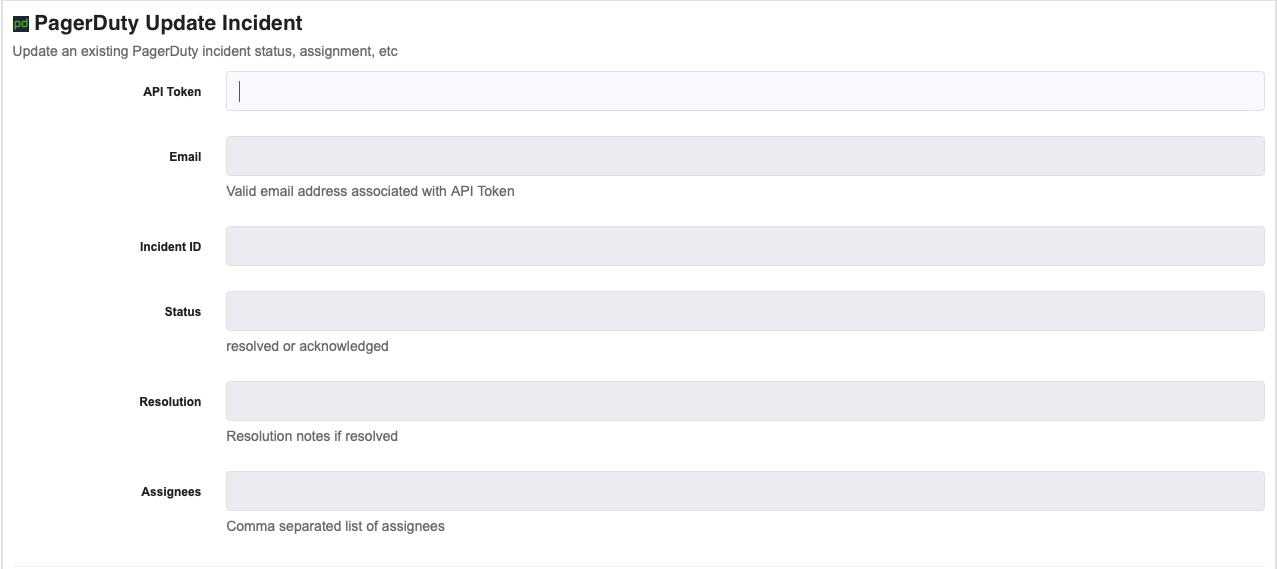
- API Token: The API token associated with the PagerDuty account
- Email: The email address associated with the API token (whichever user was logged in when the token was created)
- Incident ID: The ID of the incident to add a note to
- Status: This is where to update the status (acknowledged or resolved)
- Resolution: If the incident was resolved, this is where to add the resolution notes
- Assignees: This is where to specify assignees, each separated by a comma
# PagerDuty Get Incident
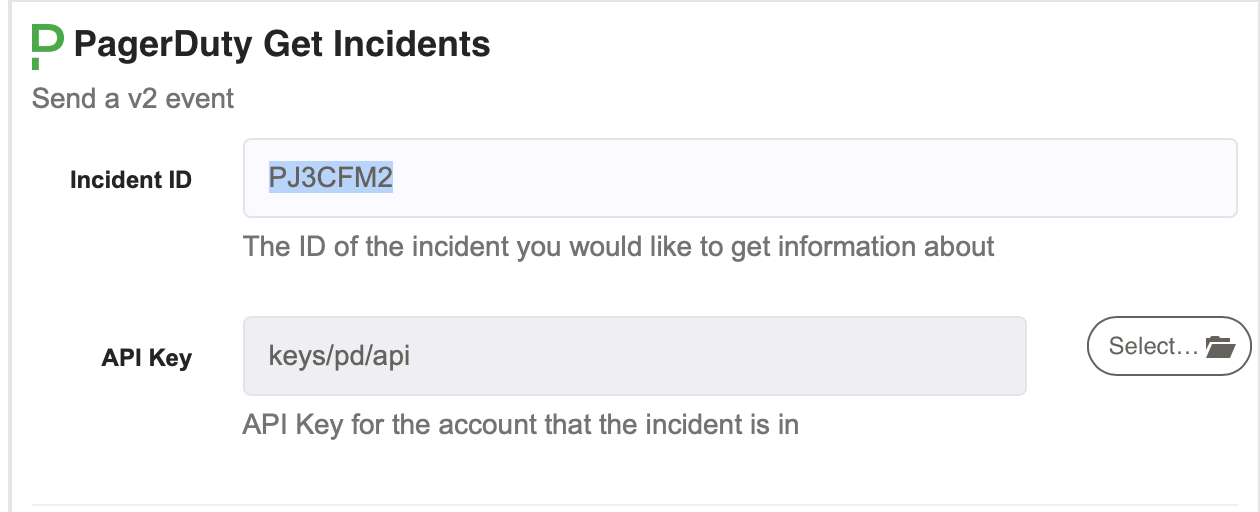
- Incident ID: The ID of the Incident to get information on.
- API Key: The API key for the account that contains the incident to update.
# PagerDuty Update Escalation Policy
This job step allows users to update the escalation policy on a given incident.
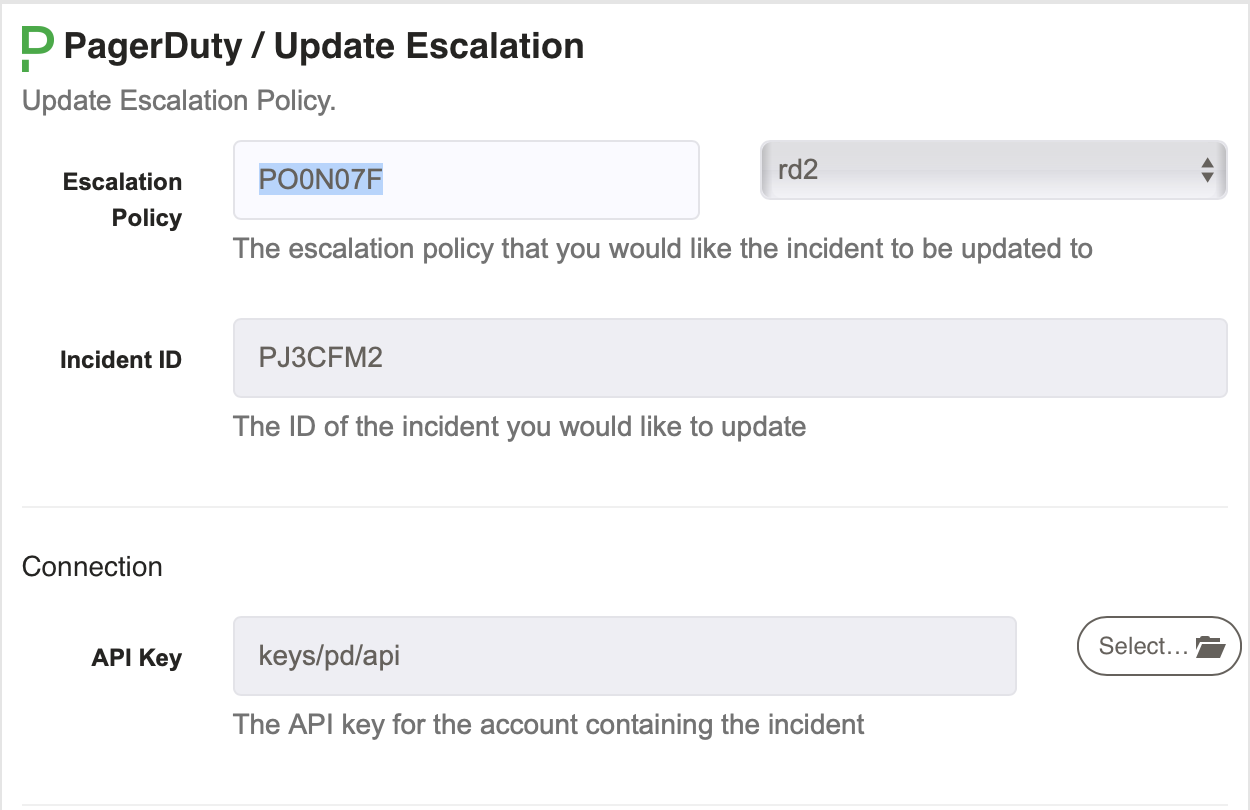
- Escalation Policy: This is the new escalation policy for the incident to use.
- Incident ID: The ID of the incident to update the escalation policy on.
- API Key: The API key for the account that contains the incident to update.
# PagerDuty Add Additional Responders
This job step allows users to specify another escalation policy or another user to assign to an incident.
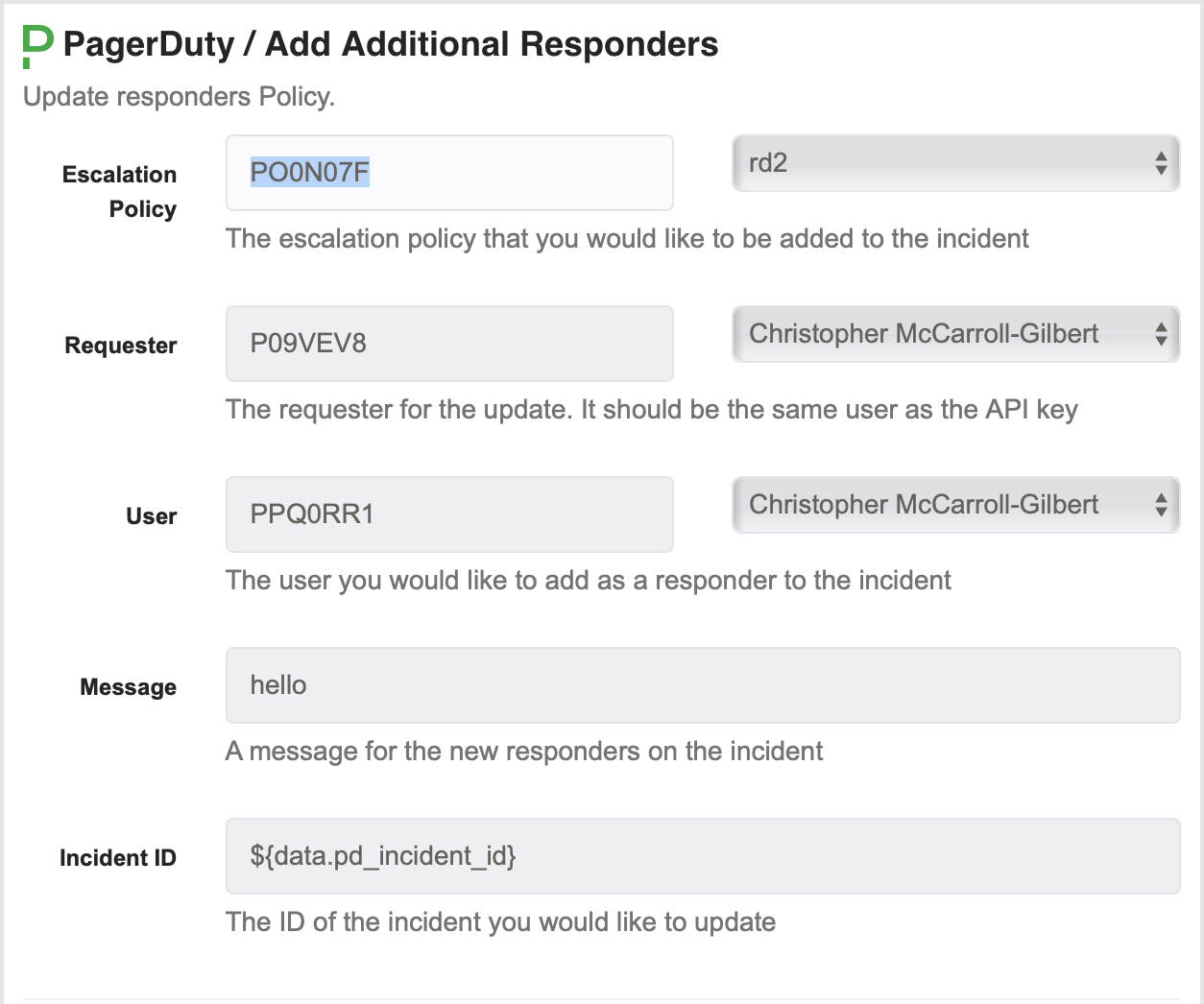
- Escalation Policy: This is the new escalation policy for the incident to use.
- Incident ID: The ID of the incident to update the escalation policy on.
- API Key: The API key for the account that contains the incident to update.
- User: The user to assign to the incident.
- Message: A message to include when notifying the new responders
- Requester: The person requesting the new responders. This user must match the API key specified in key storage.
# PagerDuty Send Change Event
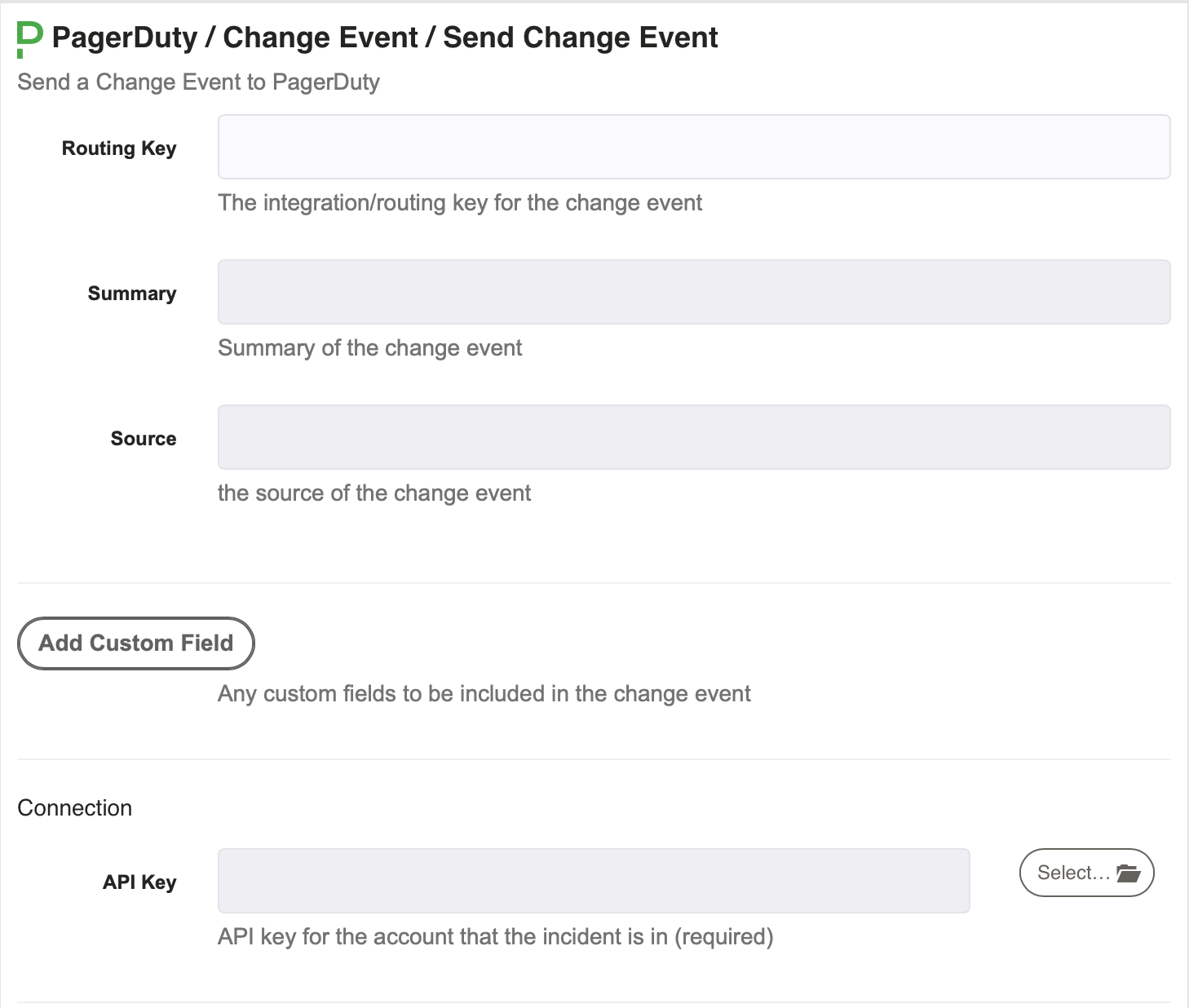
- Routing Key: This is the integration key for an integration on a service. Specify the one for the service where the change event should be sent.
- Summary: A brief text summary of the event.
- Source: The unique name of the location where the Change Event occurred.
- Add Custom Fields: This is a place to enter any custom fields for the change event. Specify a field key, label and description and then assign a value to that key once rendered.
- API Key: The API key for the account that contains the service to send the change event to.
# PagerDuty Send Impact Metric
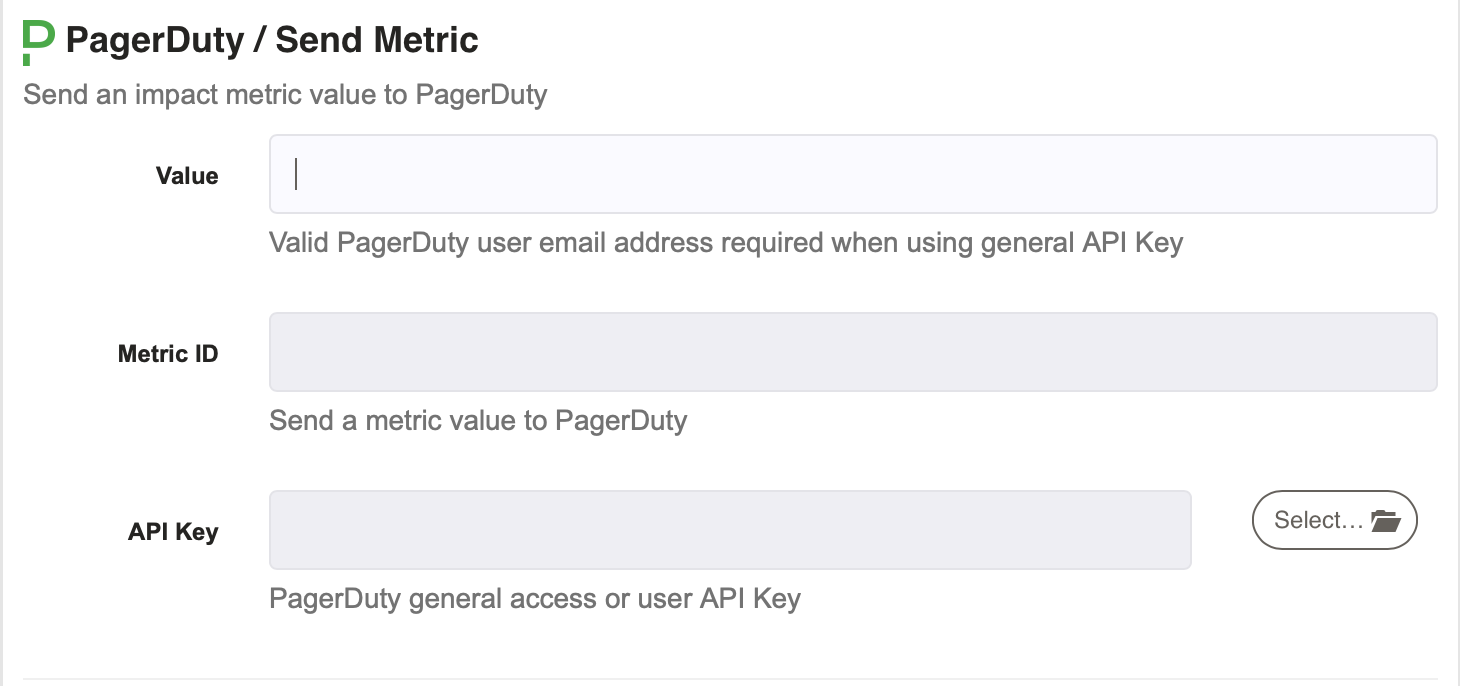
- Value: This is the value that to be appended to the impact metric.
- Metric ID: The ID of the metric that you want to be updated.
- API Key: The API key for the account that contains the incident to update.